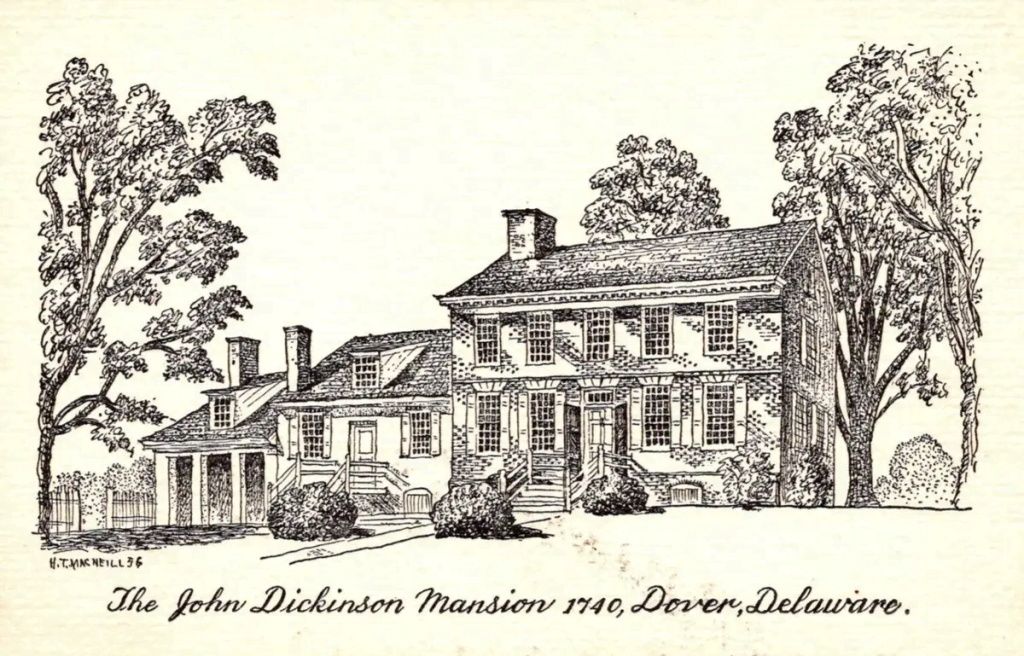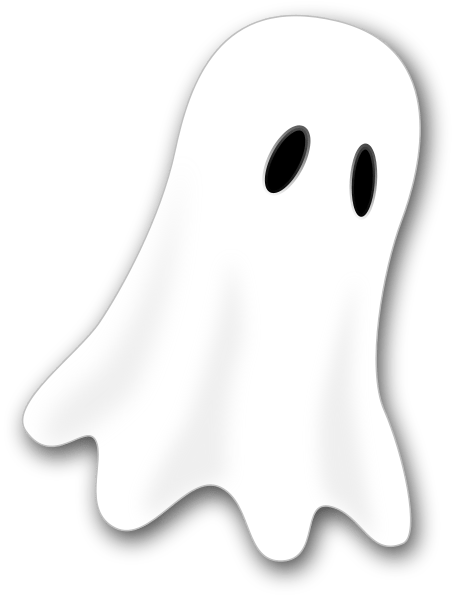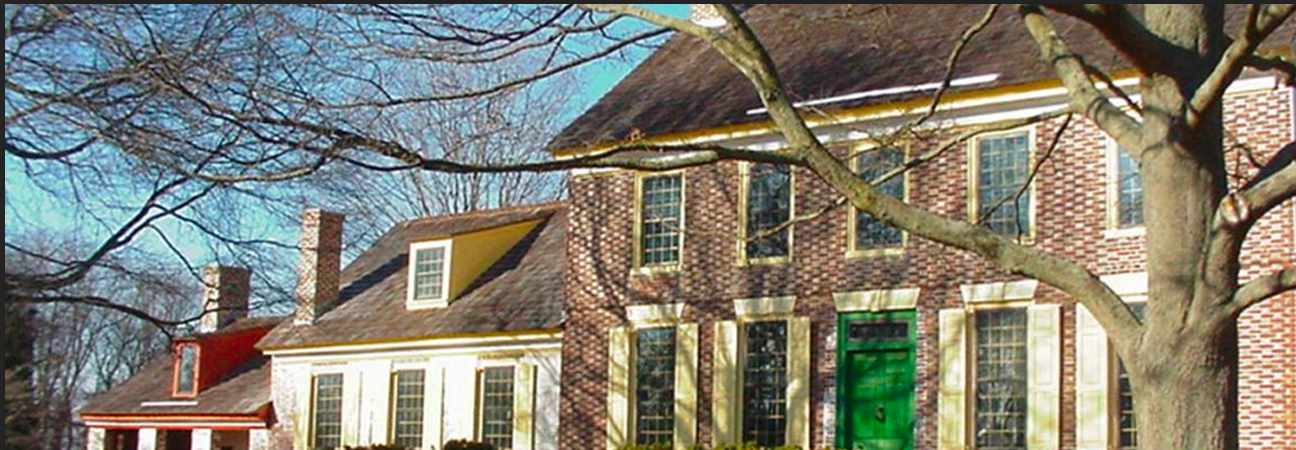Just south of Dover, there sits a National Historic Landmark on the grounds of a former plantation. Here, you can glimpse some of the history of the region and learn about a little-known Founding Father. Most are unaware of his contributions to the newly established United States of America, unless you’ve visited the John Dickinson Plantation, and the man’s home on the property where his spirit may still reside, living comfortably in the allegedly haunted John Dickinson Mansion, also known as Poplar Hall. Would you be brave enough to meet the founding father long after his death in 1808?

John Dickinson had the distinction of being called “The Penman of the Revolution,” for his contributions to the revolutionary war. Among his largest achievements, he wrote the first draft of the Articles of Confederation, the early guiding document of the country in its infancy, and attended each constitutional congress. He signed the Constitution of the United States as a delegate from Delaware, ushering in the official law of the land for the new country he helped found. Due to his land holdings inherited from his father, a wealthy plantation owner, Dickinson was one of the wealthiest men in the British colonies before the revolution, and he also inherited a sizable number of enslaved men and women who worked the land he owned.

In 1776, Dickinson retired to reside at Poplar Hall, where he refused other attempts to appoint him to other political positions and delegations. In 1777, Dickinson, who was then Delaware’s wealthiest farmer and largest slaveholder, made the decision to free all of the enslaved people under his control. This made him the first of the founding fathers to do so, as others began to follow his example later into the 1700s. Later, as the colonies found their footing in governing themselves, he would accept appointments to general assemblies and senates in Delaware and Pennsylvania, being elected the president of each state in turn.
Dickinson would pass away in 1808, with his final wishes being to end slavery in the United States, hoping his example of freeing his own enslaved population would spur more abolitionist action in the county. As we know now, his wish would not be fulfilled until nearly 60 years later, in 1865. President Thomas Jefferson would say about John Dickinson that “A more estimable man, or truer patriot, could not have left us. … and his name will be consecrated in history as one of the great worthies of the revolution.”
In 1781, his home of Poplar Hall was damaged significantly by loyalists. Later, it would nearly be destroyed by a fire in 1804. Despite these tragedies, the home was rebuilt and still stands today as a National Historic Landmark. It is owned by the State of Delaware and is now run as a museum by the Delaware Division of Historical and Cultural Affairs. It stands today much the way it was when Judge Samuel Dickinson, John’s father, built it in 1739.

While the building itself is a magnificent mansion that tells so much history simply by standing after all these years, there is a haunting presence still attached to Poplar Hall, much like how he treasured the home in life. John Dickinson is said to still occupy the mansion, occasionally showing himself to employees and guests alike and seemingly continuing his lifelong love of writing. The most common paranormal activity is the unmistakable sound of a quill scratching on parchment, apt for the penman of the revolution. Full-bodied apparitions of Dickinson, identified by his distinctive 1700s clothing and confident manner of carrying himself, have been seen all over the plantation grounds, most often nearby Poplar Hall.
Strange inconsistencies appear in photos taken at the National Historic Monument, such as orbs of light or white mist with no earthly explanation. Often, the day bed in his study will be left in pristine condition and when employees come back to the room, the bed will be in disarray as if the founding father had taken a daytime nap. Strange sounds are reported within the mansion, knocking sounds reported throughout and the sounds of furniture being moved slightly. One employee says that once they placed the furniture as close to the way it was arranged during Dickinson’s life, the furniture began to stay in its location without ghostly hands moving it.

A man who helped the revolution with his elegant writing, who freed enslaved people from servitude, and loved his mansion so much that he decided to stay after his death, John Dickinson is a founding father who those in Delaware still revere. His contributions to the fledgeling United States echo to this day, most especially with the guiding document of the Constitution. Other echoes he left behind, however, may be more ethereal than tangible. Visit the John Dickinson Plantation, step into Poplar Hall, and you just might meet one of the founders of our nation, scribbling away on parchment as if he never left the world of the living.
- About the Author
- Latest Posts

Born in Death Valley and raised on the prairie, Deborah is a Wyoming-based paranormal researcher and University of Wyoming graduate. Her interests lie in folklore, history, symbolic interaction and research. She also researches the paranormal academically and is a graduate student studying sociology.


